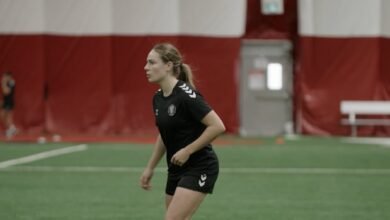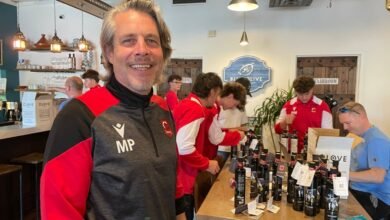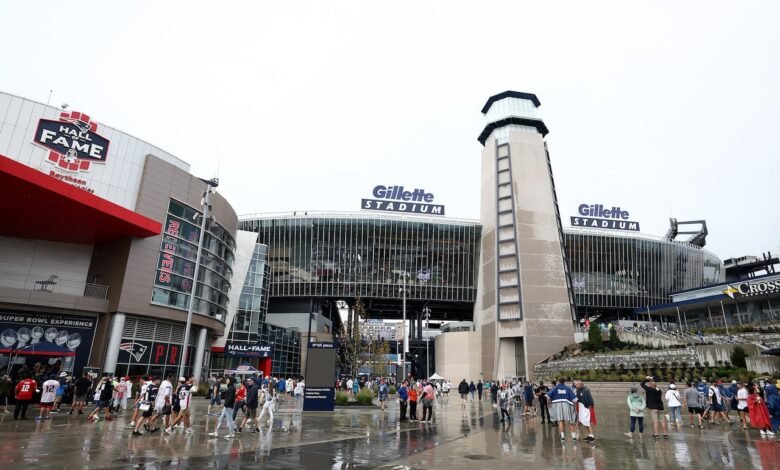
Earlier this week U.S. President Donald Trump threatened to force World Cup soccer games scheduled to take place at Gillette Stadium to move elsewhere. The pronouncement is a familiar flex from a president bent on governing like a strongman, but is also profoundly relatable.
First, there’s a geographical illiteracy common in an era when many people need smartphone map apps to drive to the corner store. In explaining the move, Trump also lobbed criticism at Boston’s mayor, Michelle Wu. But Gillette stadium is in Foxborough, about 30 minutes south of the city. That stadium is in Boston the same way the Ajax Community Centre is in Toronto. If Trump has a problem with Beantown or its mayor, maybe he should meddle with the Red Sox schedule.
Still, the threat is the latest example of Trump wielding his considerable influence over sports industry decision-makers. Most of us will never have the president’s wealth or platform or political leverage, but we all know how it feels to watch sports executives work, then decide we could do a better job.
The difference, of course, is that Trump, even before he became president, often had the power to put his ideas into practice. And when his decisions backfired, bad outcomes would cascade – usually for other people.
Lest you label me a Trump hater, dumping on an America-first president from across the border, I’ll give the current president some credit.
When he owned the New Jersey Generals of the old USFL, his coaching staff initially decided to use superstar tailback Herschel Walker sparingly. They only turned Walker loose after Trump berated them into feeding him the ball. Walker, whom Trump recently appointed the U.S. ambassador to the Bahamas, responded by rushing for 2,411 yards on 438 carries in 1985.
But if you remember the USFL, or have read Jeff Pearlman’s outstanding book Football For a Buck, you know it collapsed under the weight of a classic Trump caper. The future U.S. president convinced fellow team owners to shift their schedule from the springtime, where they had a modest but growing audience, to the fall, where they would compete with the NFL.
Trump’s gambit failed and the league imploded. The USFL filed an antitrust suit against the NFL and eventually won. Their payout?
One U.S. dollar.
Four decades later, that sports business meltdown offers three guidelines for media outlets and news consumers in the Trump Era, lessons worth reinforcing even if the press refuses to learn them.
First, he doesn’t always have the power to follow through on his wild claims, which is why we’ll wait forever for Mexico to finance a wall that runs the length of the border, or for a pipeline that siphons water from Canada to quench California’s thirst.
But when he makes those claims, believe that he aims to bring them to life. Two weeks ago he mused about using U.S. urban centres as training grounds for the military. Days later federal agents conducted an overnight raid on an apartment building on the South Side of Chicago, hopping out of Black Hawk helicopters, ransacking homes, yanking people out of bed, binding their wrists with zip ties and hauling them into custody.
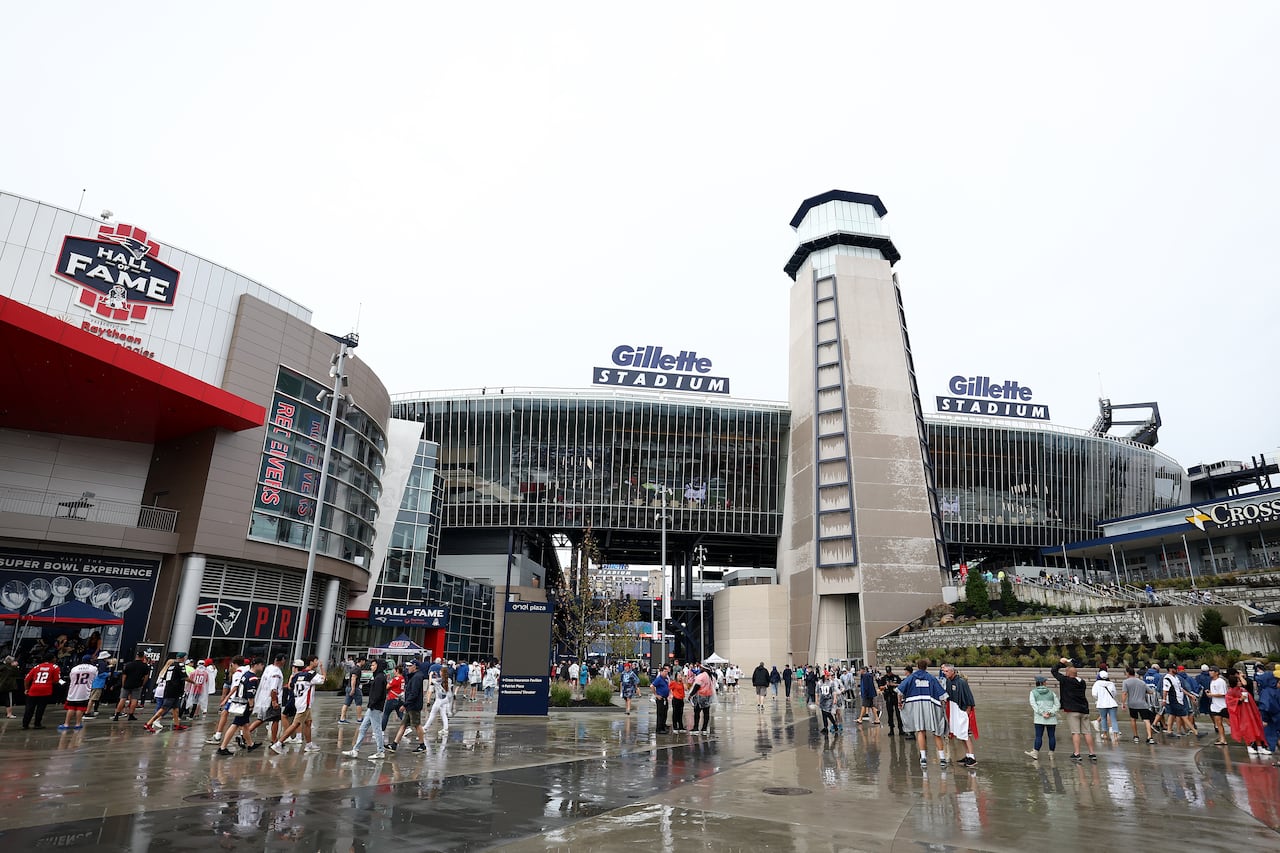
The official rationale?
Immigration enforcement, in a neighbourhood where roughly 90 per cent of residents are Black, and the vast majority of them U.S.-born, which brings us to lesson No. 3:
Exercise the maximum skepticism possible when Trump offers an explanation.
The public-facing reason for moving the USFL to the fall was to strengthen the league by challenging its biggest rival. But the real motive was to force a merger that would see the NFL absorb some USFL teams, like Trump’s franchise in New Jersey, while leaving others to shrivel.
So as far as World Cup 2026 is concerned, it’s not clear whether the president has the juice to keep games away from Foxborough, Boston, Brockton, Lynn or Lawrence. FIFA decides the host cities years in advance, making last-minute venue changes stressful and expensive, if not impossible.
But because we’ve been watching similar acts unfold since 2016, let’s treat the desire as genuine and take the explanation with several of the largest grains of salt possible. If you think I’m exaggerating about the need to remain skeptical of any stated motive for moving World Cup games, note that Trump hardly seems interested in a coherent explanation.
Maybe he’s blaming Wu for something.
“Your mayor is not good,” he told reporters this week.
Foxborough, for the record, doesn’t have a mayor, and is instead run by a town manager and a five-person board.
He also gestured at unidentified troublemakers.
“They’re taking over parts of Boston,” he said, without specifying who “they” are, or explaining how “they” could disrupt a soccer match 50 kilometres away, eight months into the future.
So if the stated reasons sound to you like a flimsy pretext for the president to put his fingerprints on the World Cup, or install some type of military presence during the tournament, you might not be wrong.
Doesn’t matter if the scene he half-heartedly set doesn’t align with reality. Trump and his surrogates describe Chicago as so overrun with criminal immigrants that it’s nearly unliveable, yet the city just hosted MLB playoff games, and a major marathon – 53,000 runners from 120 countries, and zero incidents.
Neither the sniping at Boston’s mayor, nor the suggestions that “they” might upend World Cup matches, fully explain Trump’s desire to relocate part of the World Cup. And if he has objectives beyond simply demonstrating that he can bend the world’s biggest sports event to his will, they’re unclear.
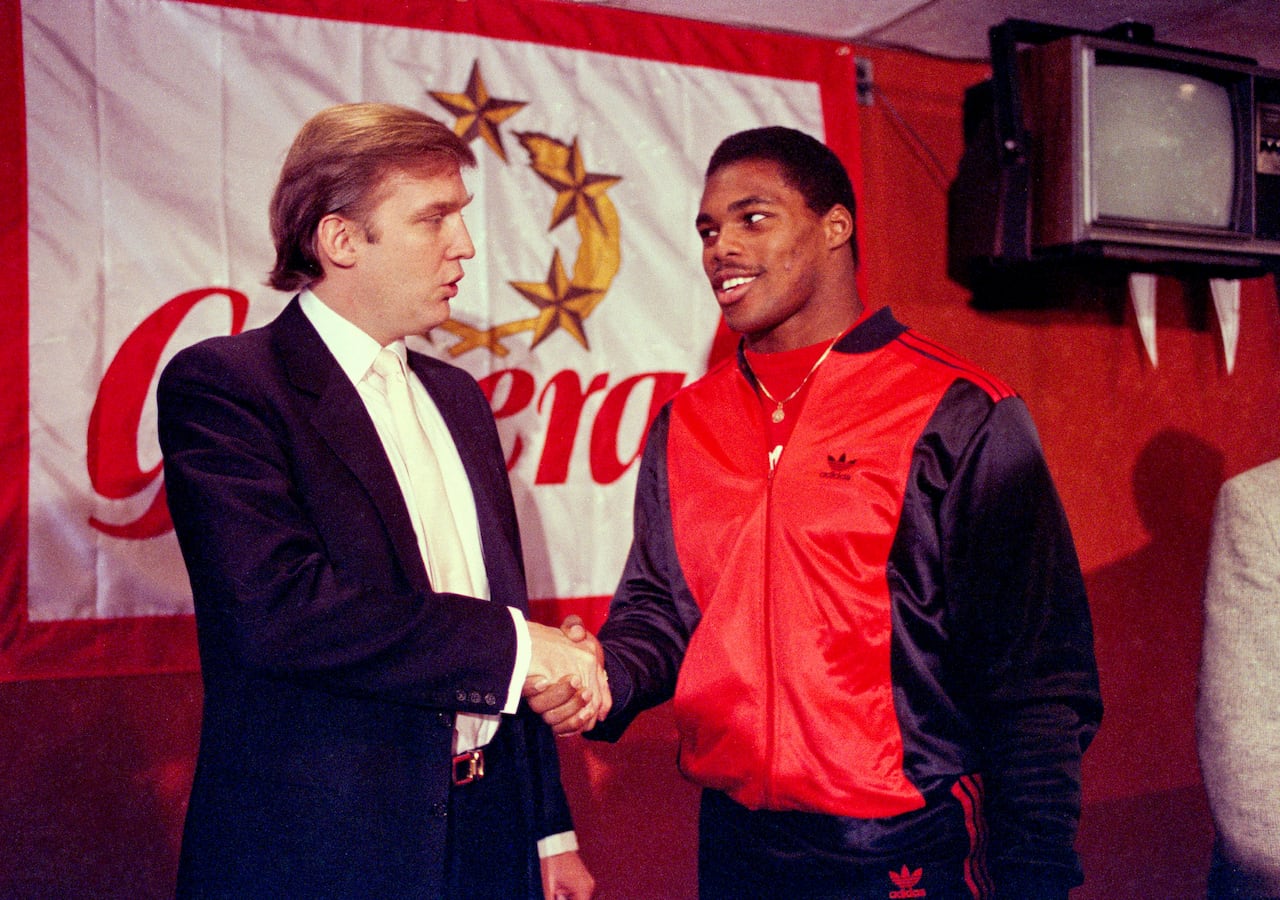
If he’s looking to punish a city whose residents don’t support him, he likely needs a different strategy. Show me a U.S. city set to host World Cup matches, and I’ll show you an urban area that voted for Kamala Harris in 2024. New York, Los Angeles, Houston or Dallas. Even Miami.
You could shuffle the sites but you still can’t outrun the dilemma. Almost any big city or division 1 college town with a World Cup-sized stadium is also a home to people who voted against Trump.
Las Vegas?
Tallahassee, Fla.?
Athens, Ga.?
Blue, bluer and bluest, as measured by last November’s voting patterns
If the president aims to keep the World Cup away from Democrat-run cities he’d be better off enticing FIFA to build a rickety wooden temporary stadium out in the prairie, Tex Rickard style.
Which still might happen. I hate to even imagine the plot twists the next eight months will deliver.
The only certainty is that Trump’s next attempt at a sports world power move won’t be his last.
Source link
